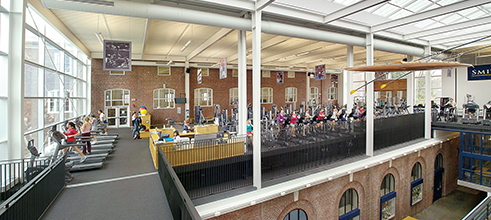Document Type
Article
Publication Date
5-1-2008
Publication Title
Biological Psychology
Abstract
Performance on the Sternberg working memory task, and MEG cortical response on a variation of the Sternberg task were examined in middle-aged carriers and non-carriers of the APOE ε4 allele. Physical activity was also assessed to examine whether exercise level modifies the relationship between APOE genotype and neurocognitive function. Regression revealed that high physical activity was associated with faster RT in the six- and eight-letter conditions of the Sternberg in ε4 carriers, but not in the non-carriers after controlling for age, gender, and education (N = 54). Furthermore, the MEG analysis revealed that sedentary ε4 carriers exhibited lower right temporal lobe activation on matching probe trials relative to high-active ε4 carriers, while physical activity did not distinguish non-carriers (N = 23). The M170 peak was identified as a potential marker for pre-clinical decline as ε4 carriers exhibited longer M170 latency, and highly physically active participants exhibited greater M170 amplitude to matching probe trials.
Keywords
APOE, Exercise, M170, MEG, Working Memory
Volume
78
Issue
2
First Page
179
Last Page
187
DOI
10.1016/j.biopsycho.2008.02.007
ISSN
03010511
Version
Author's Accepted Manuscript
Recommended Citation
Deeny, Sean P.; Poeppel, David; Zimmerman, Jo B.; Roth, Stephen M.; Brandauer, Josef; Witkowski, Sarah; Hearn, Joseph W.; Ludlow, Andrew T.; Contreras-Vidal, José L.; Brandt, Jason; and Hatfield, Bradley D., "Exercise, APOE, and Working Memory: MEG and Behavioral Evidence for Benefit of Exercise in Epsilon4 Carriers" (2008). Exercise and Sport Studies: Faculty Publications, Smith College, Northampton, MA.
https://scholarworks.smith.edu/ess_facpubs/26


